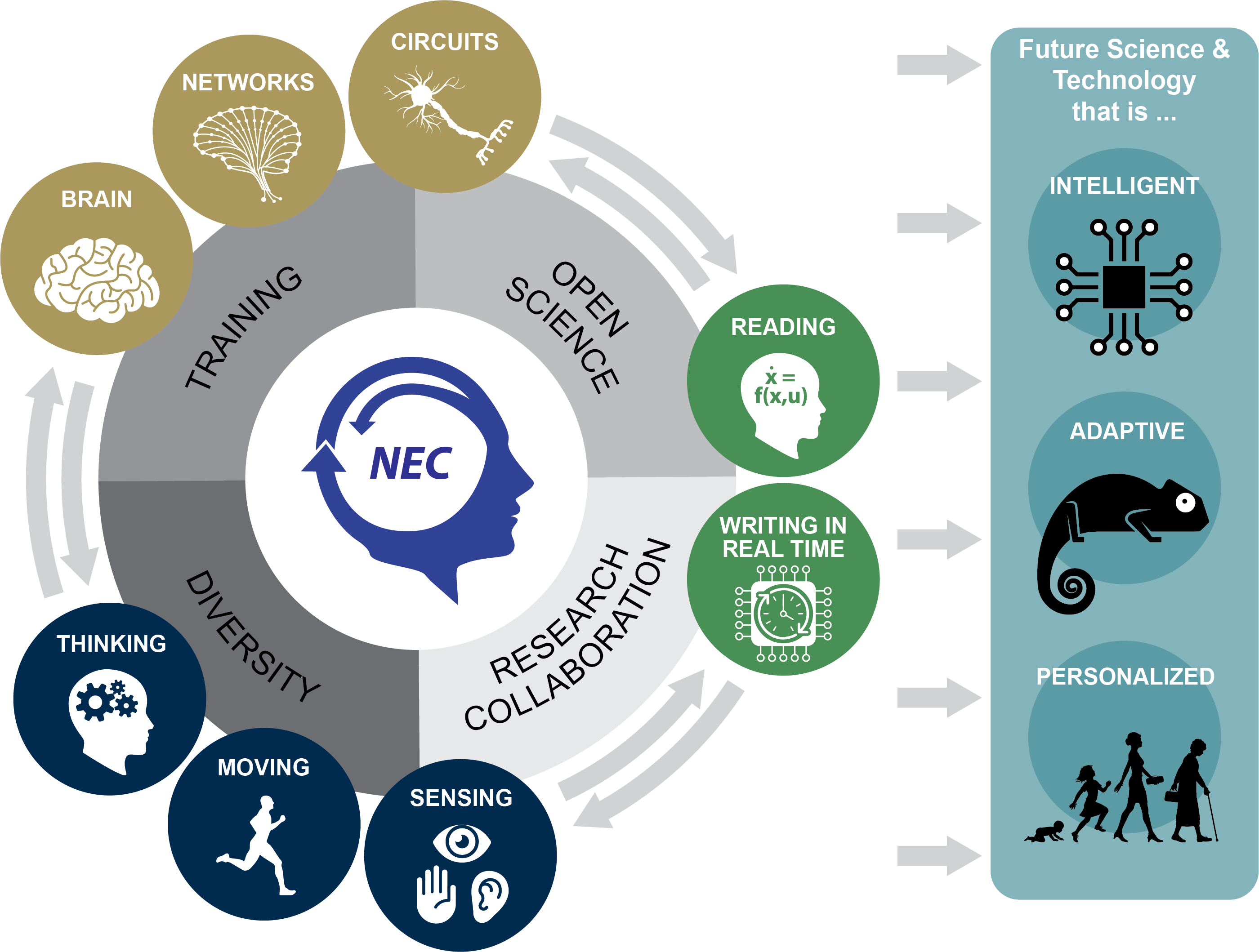The Vision of the GT/Emory Neural Engineering Center (NEC) is that in the future, technologies that interact with the brain and nervous system will be adaptive, intelligent, and personalized.
Our Mission is to advance the science, technology, and ethical foundations necessary to transform our understanding of complex, adaptive, and diverse brain function and our ability to shape brain activity and behavior. We further seek to train the next generation of leaders in Neural Engineering research in the academic, industrial, and government sectors, and beyond.

The brain is by far the most complex organ of the body, giving rise to our ability to sense, move, and think via complex neural activity that is context dependent, variable, diverse across individuals, and adapting as we live, work, age, change, and experience injury and disease. Although there has been a recent explosion of tools for measuring and stimulating brain activity, what is critically missing is a computational pipeline to enable intelligent interactions that are as adaptive as the brain itself.
The GT/Emory NEC seeks to leverage revolutions in neuroscience, neuroengineering and machine learning to create a paradigm shift in understanding the basic rules governing brain function as well as developing effective and ethical interactive technologies to shape brain activity and behavior. The potential future impact of neurotechnology requires new approaches to training interdisciplinary researchers, knowledge transfer with industry and practitioner stakeholders, and educating the general public about the evolving scientific, technical and ethical landscape.
